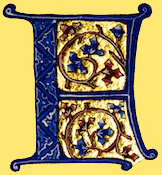Keynote Lecture - April 1, 2017
Dr. Steven Bednarski of St. Jerome's University presented Climates of Change: Environmental History as Hands-On Pedagogy
Steven Bednarski and his students discuss their four-year experiential learning adventure to Herstmonceux Castle, where, each summer, they conduct excavations and visit archives for clues about late medieval climate change. The students, in conjunction with an international team of archaeologists, historians, palaeoclimatologists, and environmentalists, seek to understand the impact of changing weather and climate conditions on lived human conditions in southern England circa 1450. During the keynote, Bednarski and his junior research partners will report on finds, techniques, and the benefits of experiential learning.
Dr. Steven Bednarski is a social historian of medieval crime, gender, and environment. He is Professor of History at St. Jerome's University in the University of Waterloo, where he also serves as Co-Director of Medieval Studies and Special Advisor to the Vice President Academic and Dean on Academic Planning. He is Director of the Herstmonceux Project, an international, interdisciplinary research collaboration that draws on a partnership between St. Jerome's University, the University of Waterloo, Queen's University, and the Bader International Study Centre at Herstmonceux Castle. Its research centres on an experiential learning model to generate knowledge about the impact of late medieval climate and weather conditions on culture. His first book, Curia: A Social History of a Provençal Criminal Court in the Fourteenth Century, looks at the evolution of late medieval criminal courts in western Europe. His second book, A Poisoned Past: The Life and Times of Margarida de Portu, an Accused Poisoner, is a pedagogical microhistory. It queries how academics write history and proposes a new learner-centered model for the study of the past and present.
Michelle Serrano-Sandoval

